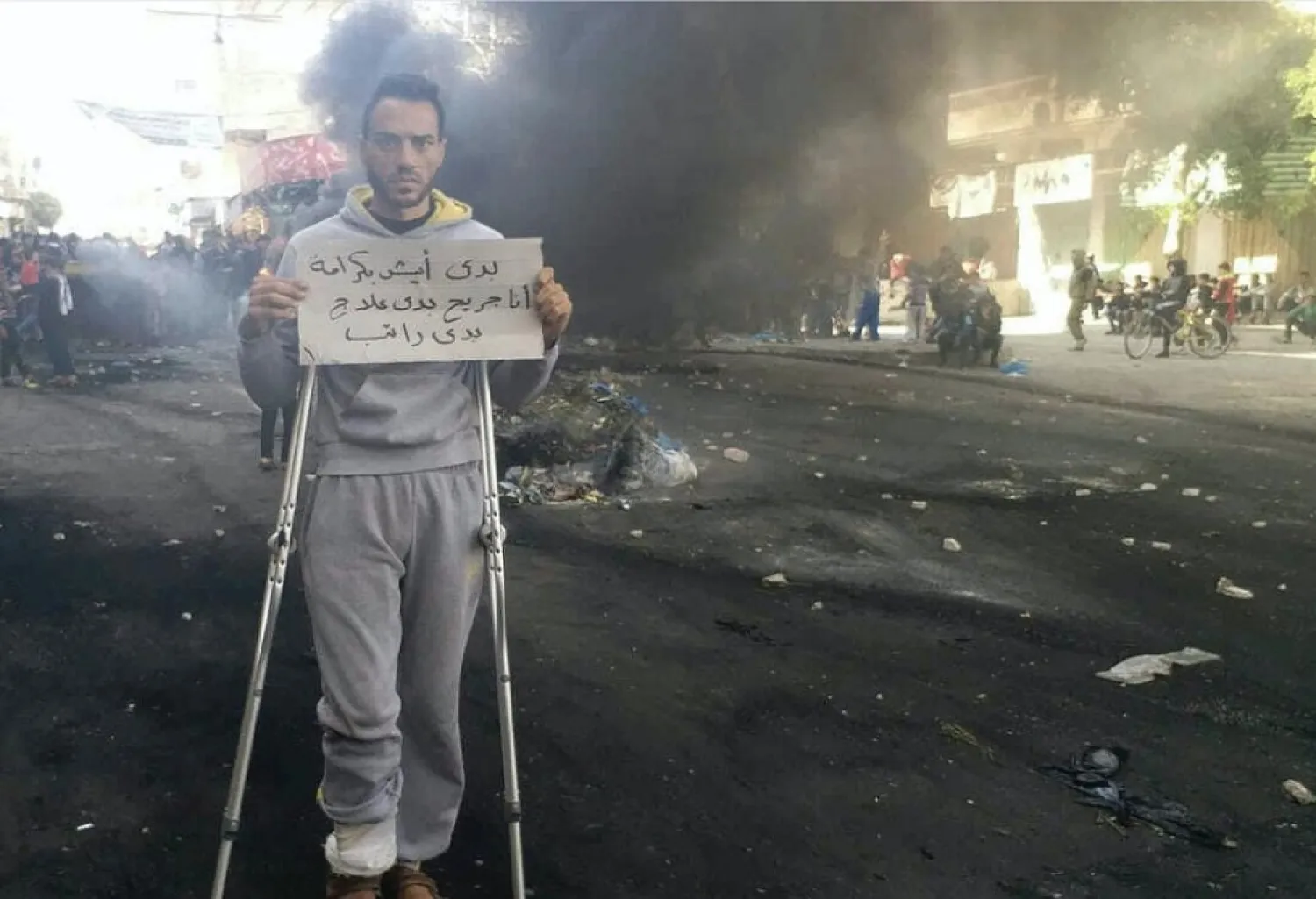Fatah deputy chief Mahmoud al-Aloul revealed on Tuesday that intense local and regional efforts are underway to rein in the Hamas movement’s violent crackdown on protests in the Gaza Strip.
He said talks are underway with Egypt to that end. He also accused Hamas of seeking to create crises between Palestinians and spark an internal conflict in order to approve the “Deal of the Century” peace proposal that is being prepared by the US administration.
He made his remarks as Hamas intensified its crackdown and arrests against popular activists who had taken to the streets of Gaza to protest against new taxes and price hikes.
Hamas has resorted to excessive use of force in order stifle sedition, arresting several members of Fatah and the Palestinian left. Official reports said that they were subject to torture during investigations.
Since the eruption of the protests, the Independent Commission for Human Rights has documented a number of rights violations as Hamas’ security agencies attempted to disperse protesters by force, citing a number of injuries among the demonstrators.
Some 25 rallies have taken place since their eruption on March 14. Hamas has also arrested over 1,000 people taking part in the rallies. Some 300 remain in detention. Twenty-three journalists were also detained.
Fatah, meanwhile, accused Hamas of attempting to assassinate its spokesman in Gaza, Atef Abou Seif, after he was severely beaten in the Strip. Hamas has denied the charge and condemned the attack.
Abu Seif has suffered from several broken bones and is receiving medical treatment in Ramallah
Fatah stressed that it will not remain silent over Hamas’ “crimes” for very long. It did not disclose what measures it intends to take against the movement.
Observers believe it would resort to legal measures if necessary.
In addition, the Popular Front’s politburo revealed that Hamas has arrested several of its members. Democratic Front politburo members Taysir Khaled compared Hamas’ security agencies to the Gestapo, while Muslim and Christian clerics joined in in condemning the movement’s practices.
The Palestinian government held Hamas completely responsible for the dangerous deterioration, while the Palestinian Liberation Organization (PLO) executive committee condemned the movement’s “barbaric” crackdown on peaceful youth protests.
It said that such practices are alien to Palestinian culture, calling on the de facto forces in Gaza to cease this behavior immediately, return to reason and implement the reconciliation to end the Palestinian rift.
Hamas has yet to officially respond to any of the mounting backlash against it.
Prominent movement member in the West Bank, Hassan Youssef, did however, propose an end to political arrests, saying he rejects the “use of force against any Palestinian over their right to freedom of expression.”
Other Hamas members have distanced themselves from the movement’s practices.
Hamas seized control of Gaza in 2007 from the forces of Palestinian President Mahmoud Abbas. Israel imposed a blockade, a step meant to prevent Hamas from arming. The blockade, and three wars with Israel, have ravaged Gaza's economy but done nothing to loosen Hamas' grip on power.
Unemployment is over 50 percent and much higher for young university graduates. Tap water is undrinkable, electricity is limited and travel abroad severely restricted. Hamas' cash-strapped government recently raised taxes on basic goods like bread, beans and cigarettes.
Protesters accuse Hamas of corruption and imposing the hefty taxes to enrich itself. They used social media to organize protests last week with the slogan "We want to live!"
This is not the first time people have taken to the streets against Hamas. Two years ago, protesters demonstrated against the chronic power cuts on a cold January day before Hamas violently dispersed them. This time around, the sporadic rallies have continued for several days, despite a similarly violent response.









